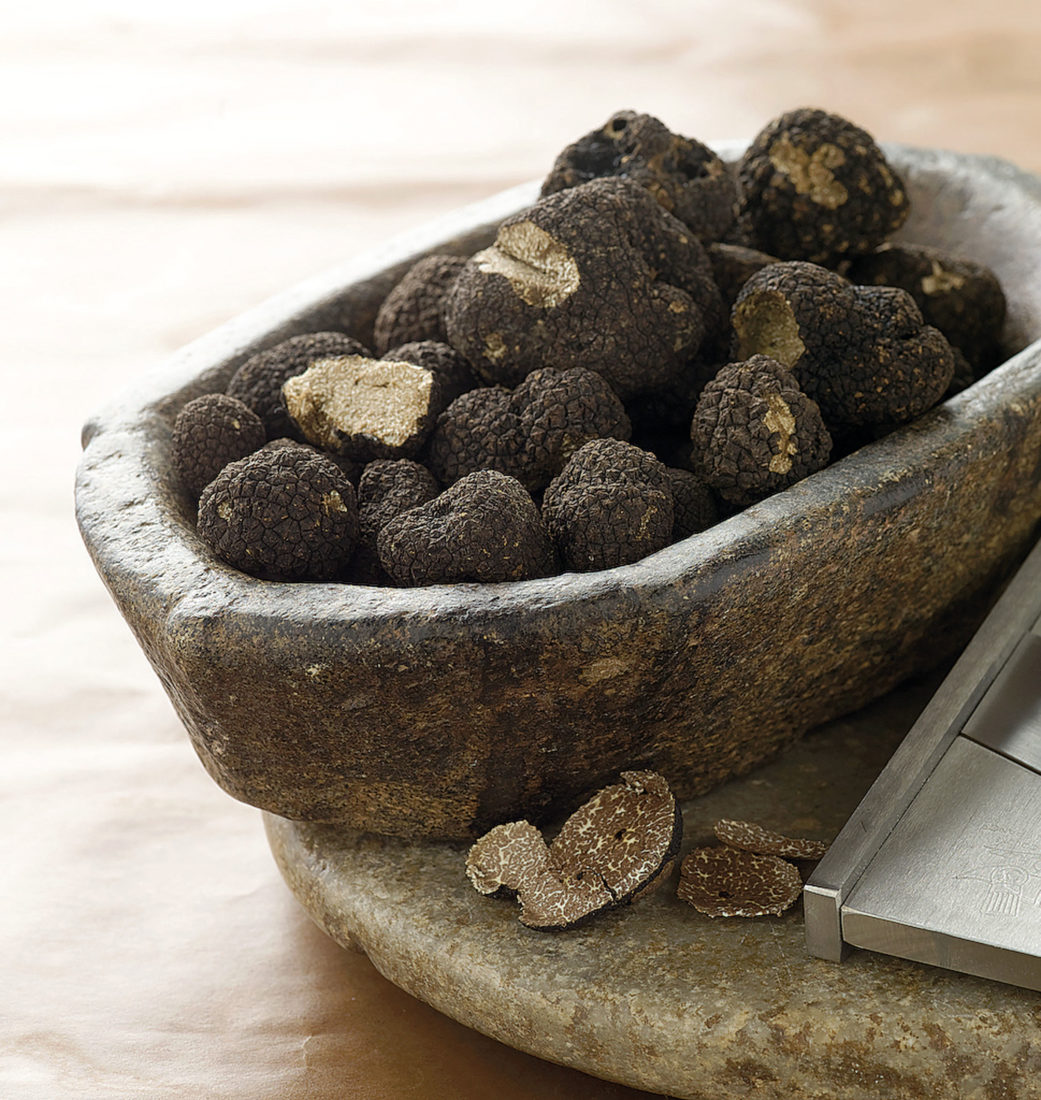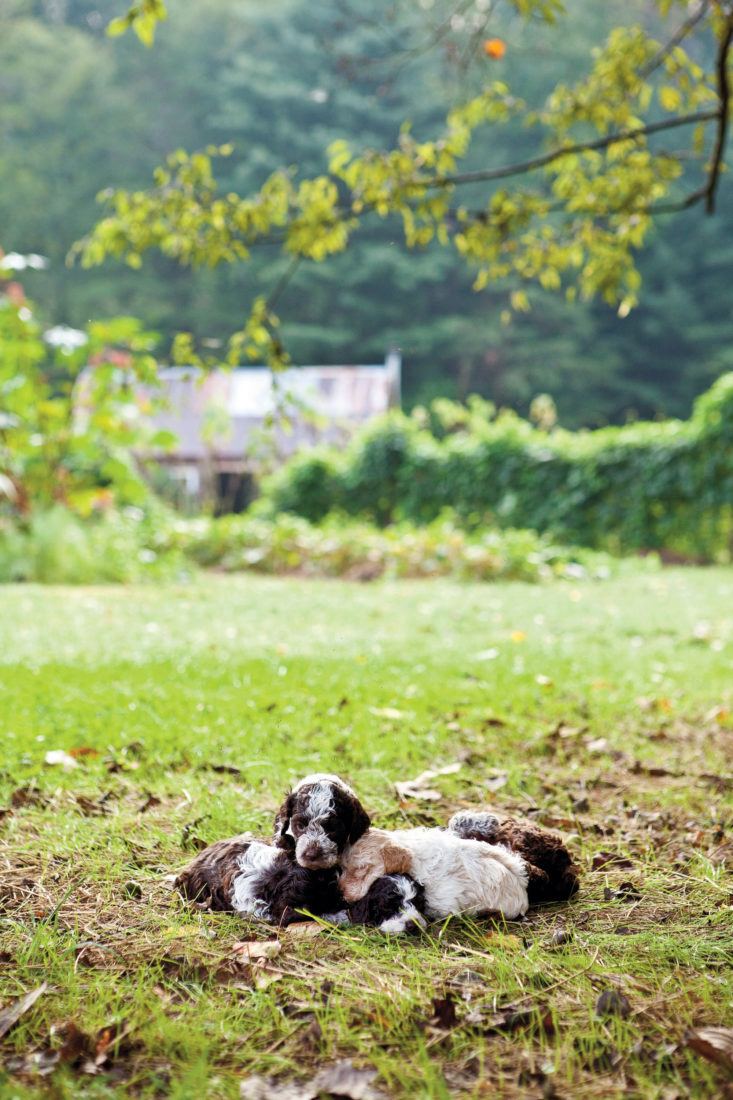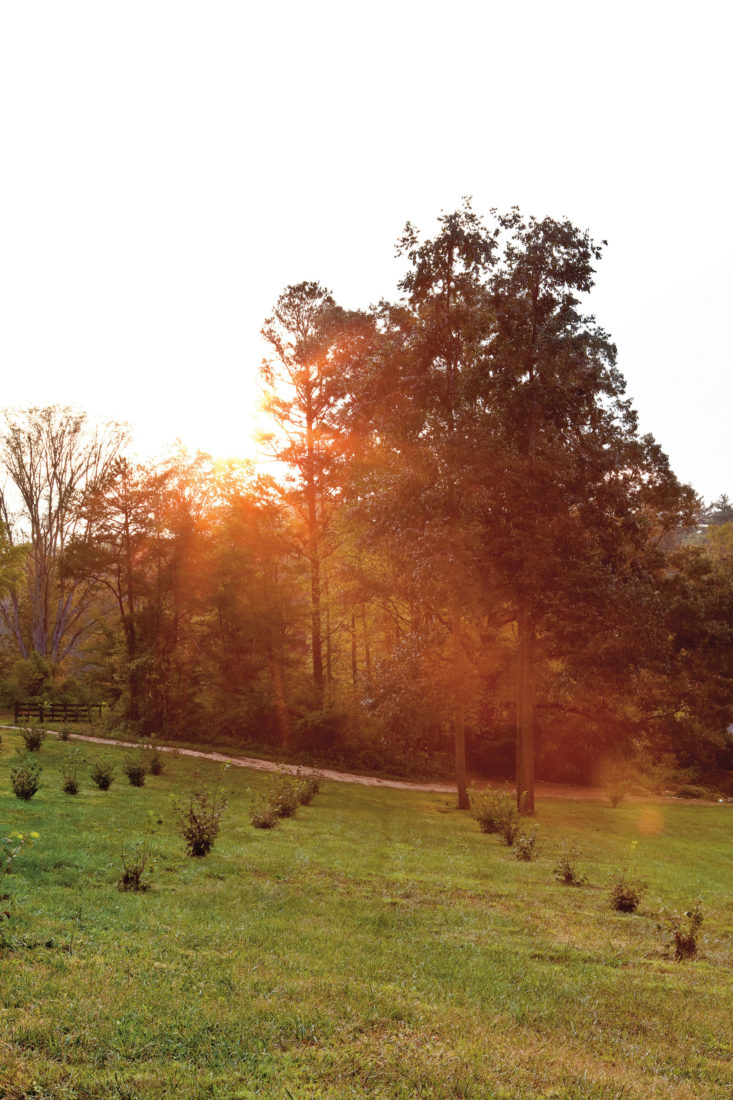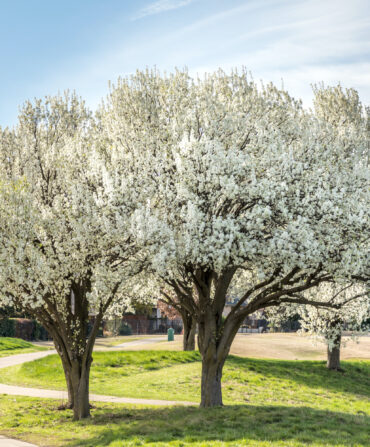Tucked into a grove of trees, just off a dirt path, some of Blackberry Farm’s most cherished employees are just lounging around doing nothing. They won’t park your car or fetch you a drink, but they will do their best to enhance your stay at this legendary Walland, Tennessee, establishment. Tom, Luci, Rico, Bruno, Rolla, and Lea are dogs, specifically the rare Lagotto Romagnolo breed from Italy that serves one main purpose: to hunt for truffles.
Black Perigord winter truffles are the most exquisite jewels in gourmet cuisine, coveted by world-renowned chefs such as Thomas Keller and Daniel Boulud. Regions of Spain, southern France, and northern Italy are responsible for much of the world’s truffle production, while active farms in the United States have until recently been a rarity.
In fact, just four short years ago, Blackberry Farm proprietor Sam Beall had no idea that the weather and soil conditions in East Tennessee are nearly perfect for truffle cultivation. Then he got a call from Tom Michaels, a truffle farmer who had moved from Oregon to Tennessee to start up his own farm. “He called, said he had truffles, and asked if we would be interested in buying any,” Beall recalls. “We said thanks, but no thanks. Then he showed up with a container filled with truffles set in Carolina rice, and that was it.”
Naturally, the two fell into conversations about Michaels’s farming operation. Michaels didn’t like dogs but knew he needed them to maximize his output. Beall quickly agreed to go to Italy to procure two Lagottos, Tom and Luci, and help Michaels with his work. In turn, Michaels—along with another truffle expert, Charles Lefevre—helped Blackberry Farm create its own truffle orchard, planted three years ago and now nearly halfway through its growing cycle on the way to actually producing truffles.

Photo: Beall + Thomas Photography
Fresh truffles.
While any number of dog breeds can hunt for truffles, Lagottos are the traditional breed of choice in Italy. The training of the dogs falls to Jim Sanford, who has worked at the farm for the past eleven years. Sanford uses a simple find/reward system, placing a sponge with truffle odor underneath soil. Once the dog finds the sponge, it receives a treat. “The whole process takes three to five months,” says Sanford. “It doesn’t take them long to figure it out. The first time we took Luci and Rolla up to Tom Michaels’s farm, they found nearly two hundred pounds.”

Photo: Beall + Thomas Photography
A new litter at rest.
At prices that can reach sixty dollars per ounce, that’s no small change. Currently, Blackberry Farm has an orchard of 128 hazelnut trees—an easy-to-grow species that has its roots inoculated with truffle spores—but it eventually plans to use recently purchased land surrounding the resort to plant more trees. Until then, Blackberry Farm brings in truffles for various events, including a “truffle weekend” in February.

Photo: Beall + Thomas Photography
The truffle orchard.
Eating Perigord truffles is one of the few gastronomic experiences that live up to the hype. And chefs such as Boulud have deemed the Tennessee truffle as good as those from Europe. That was the idea when Beall planted the trees in the first place. “First and foremost, this is designed to enhance the experience of our guests,” he says. “It gives them the opportunity to find their own truffles and eat them that night.” Eventually Blackberry Farm will sell its truffles to chefs as well as the general public, as it already does with its homemade jams, cured meats, and cheeses.
While Tennessee may have the perfect dirt for growing truffles, Blackberry Farm isn’t looking to get carried away. “We have no desire to become the truffle capital of North America,” Beall says. “This area already has a firmly established identity for truffle production. And really, it’s just farming, it’s not rocket science.”








